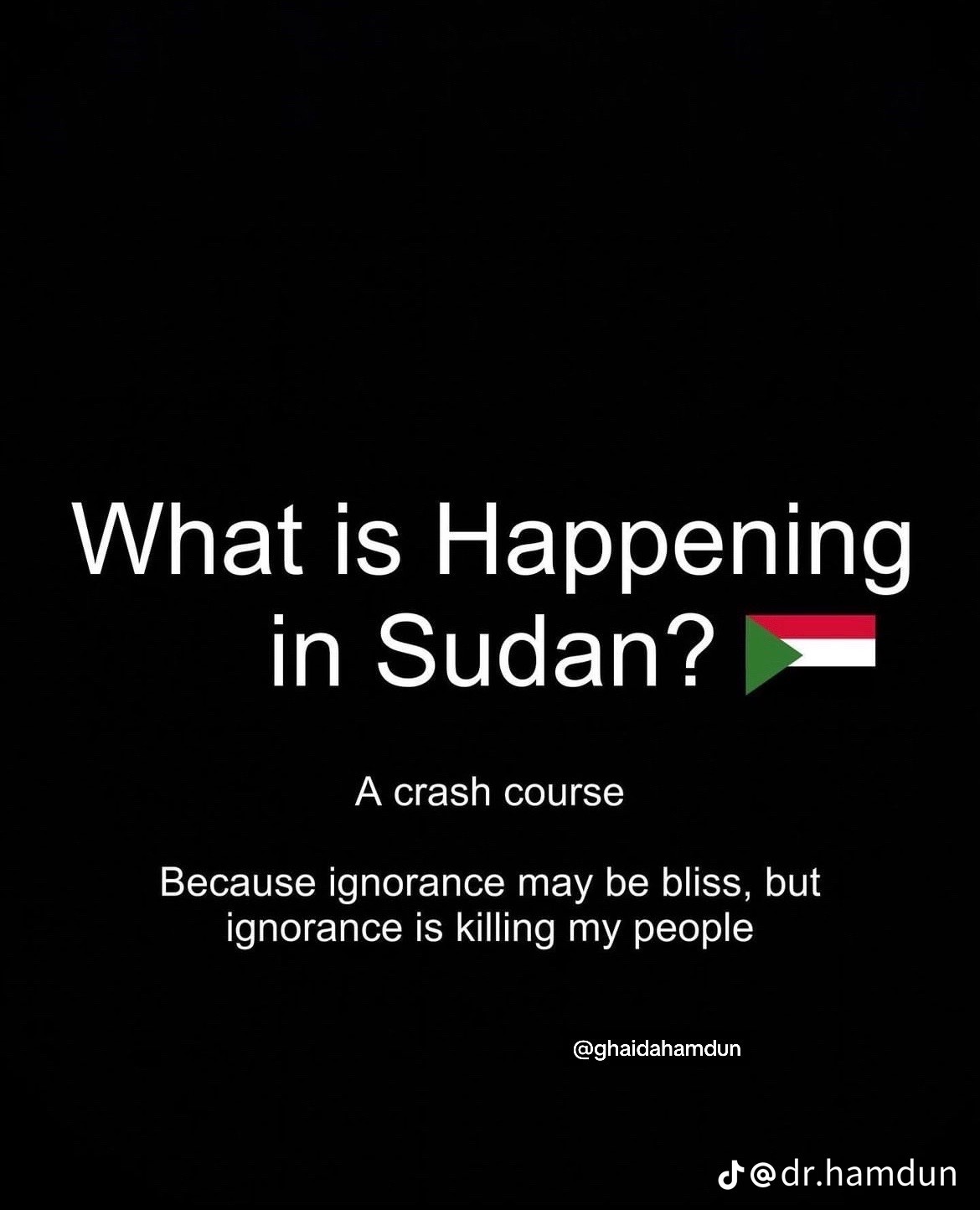
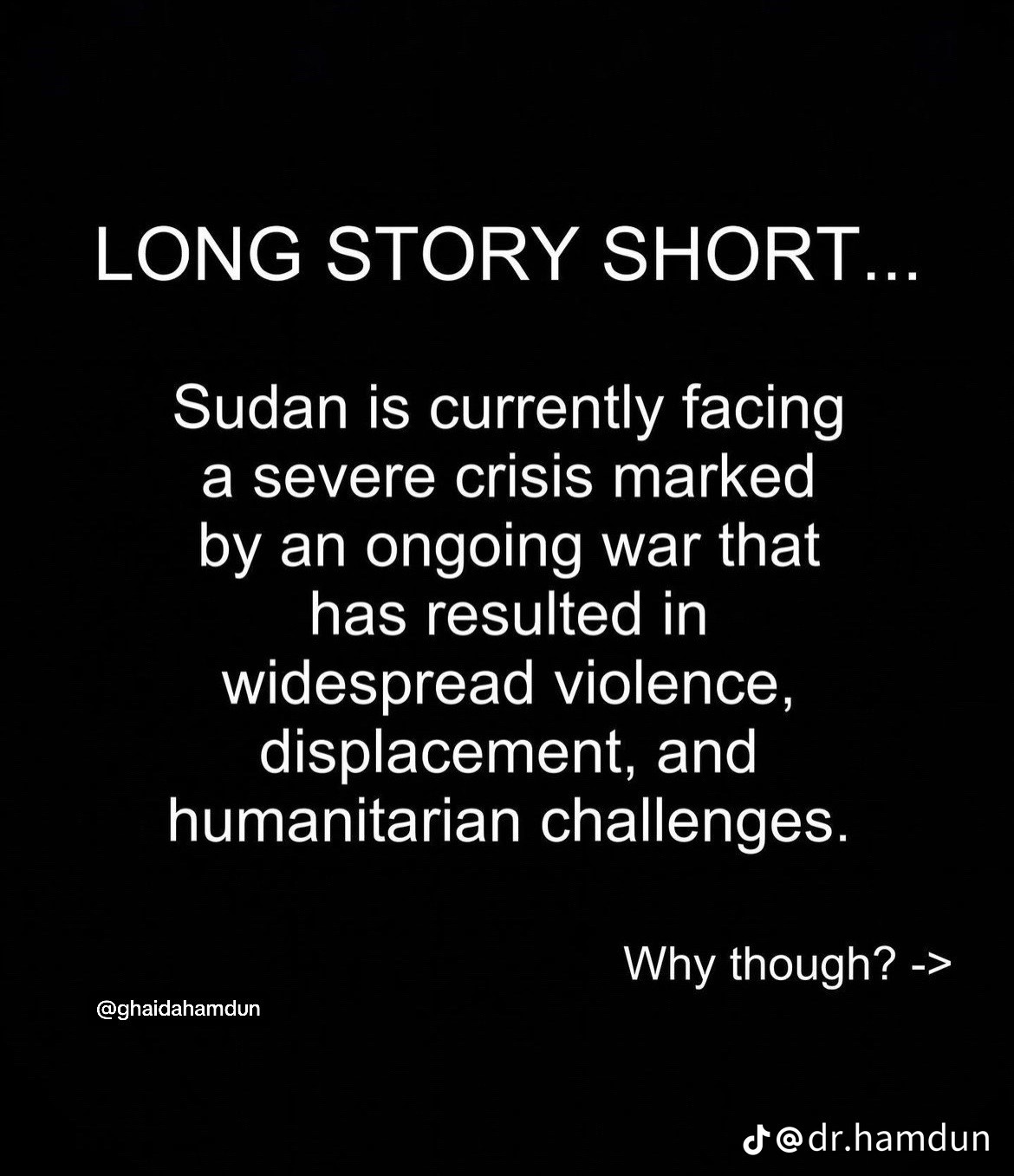
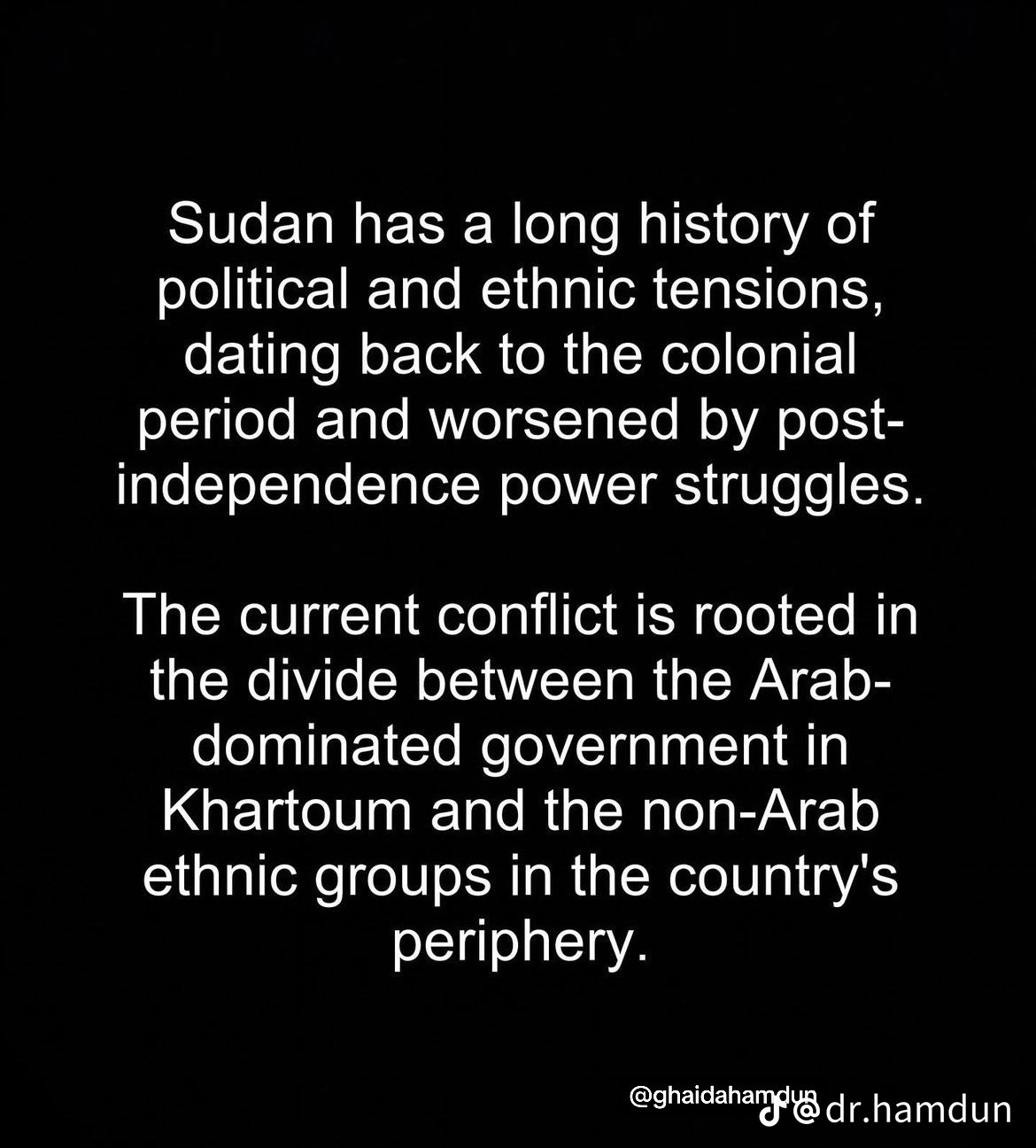
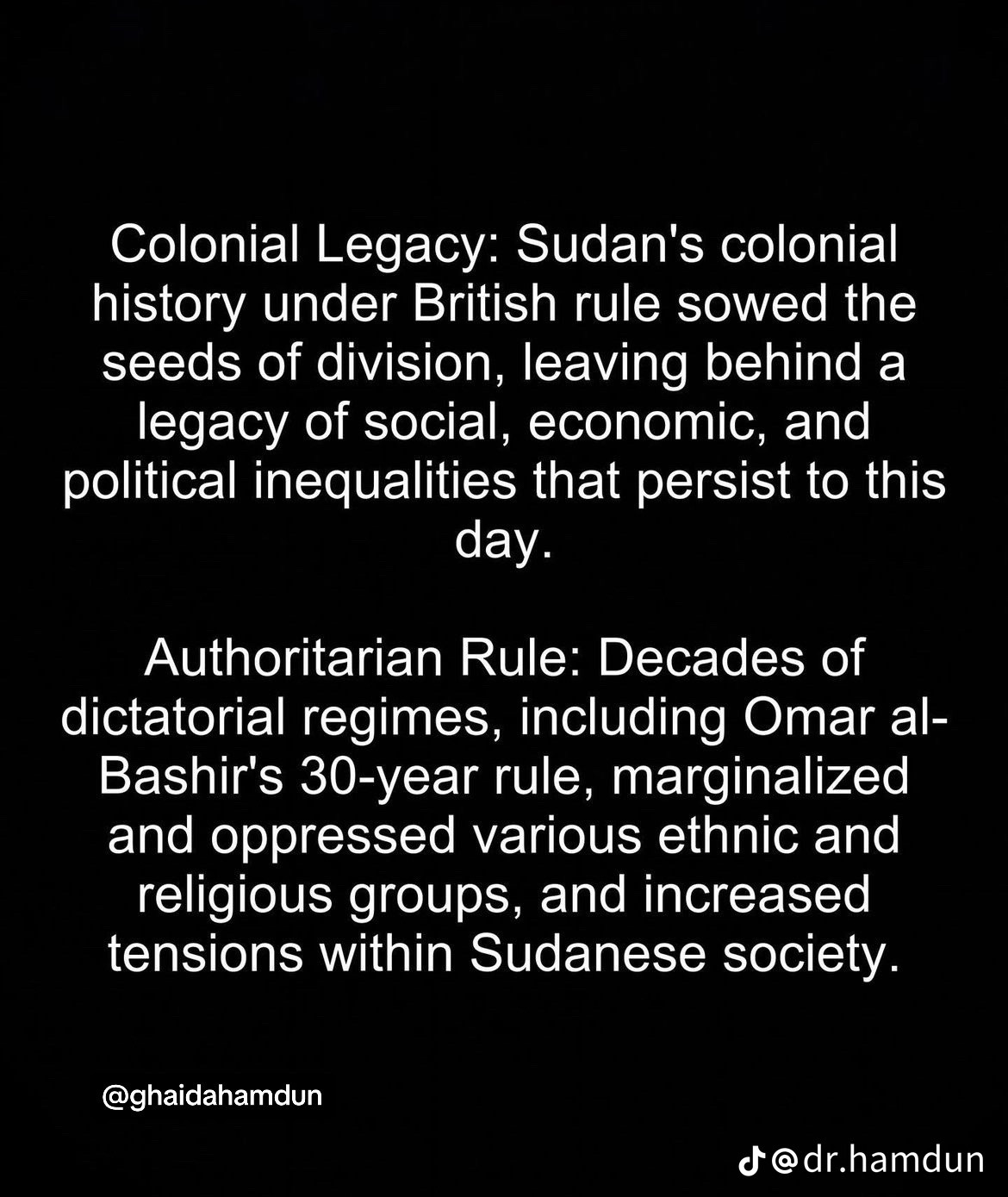
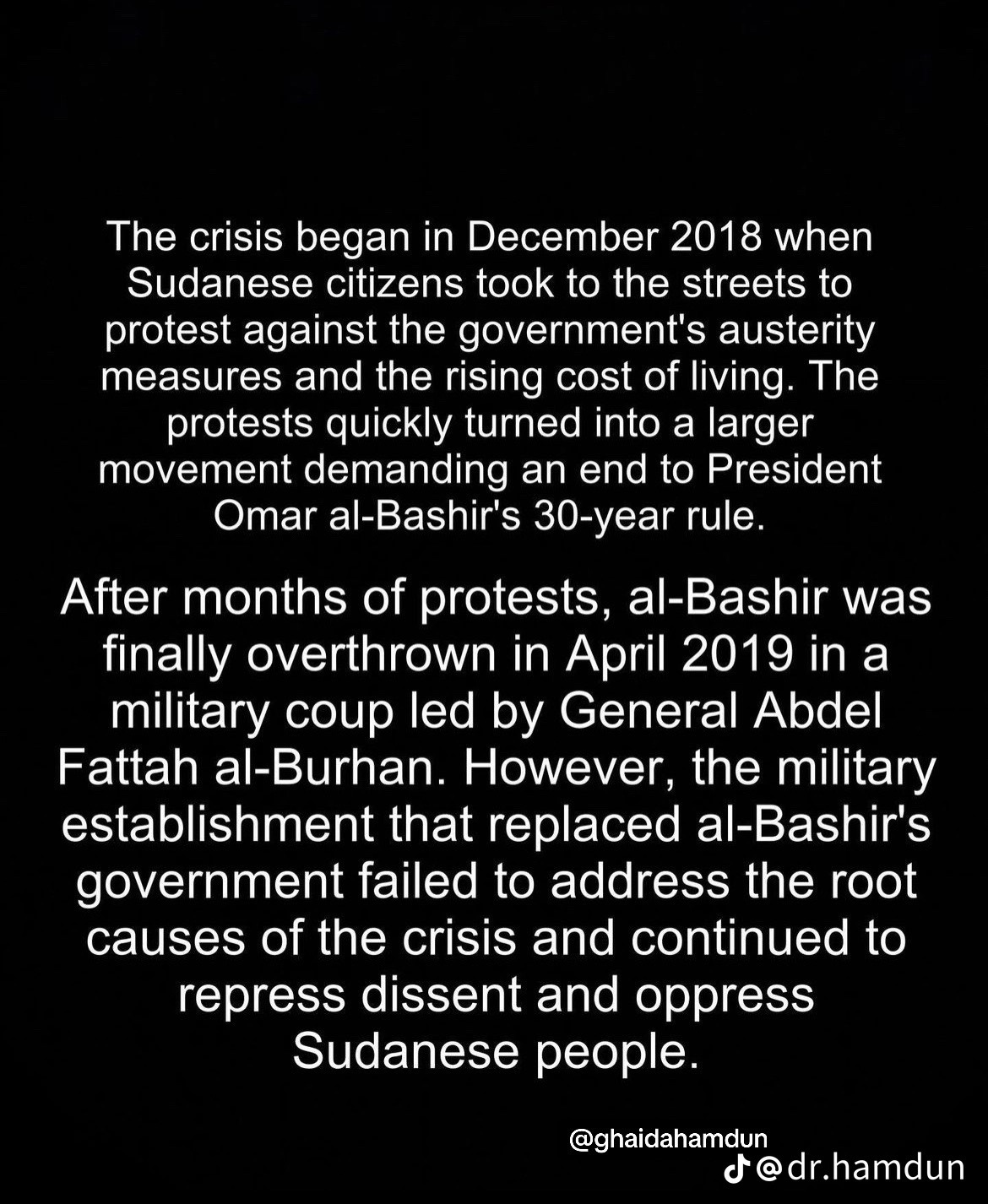
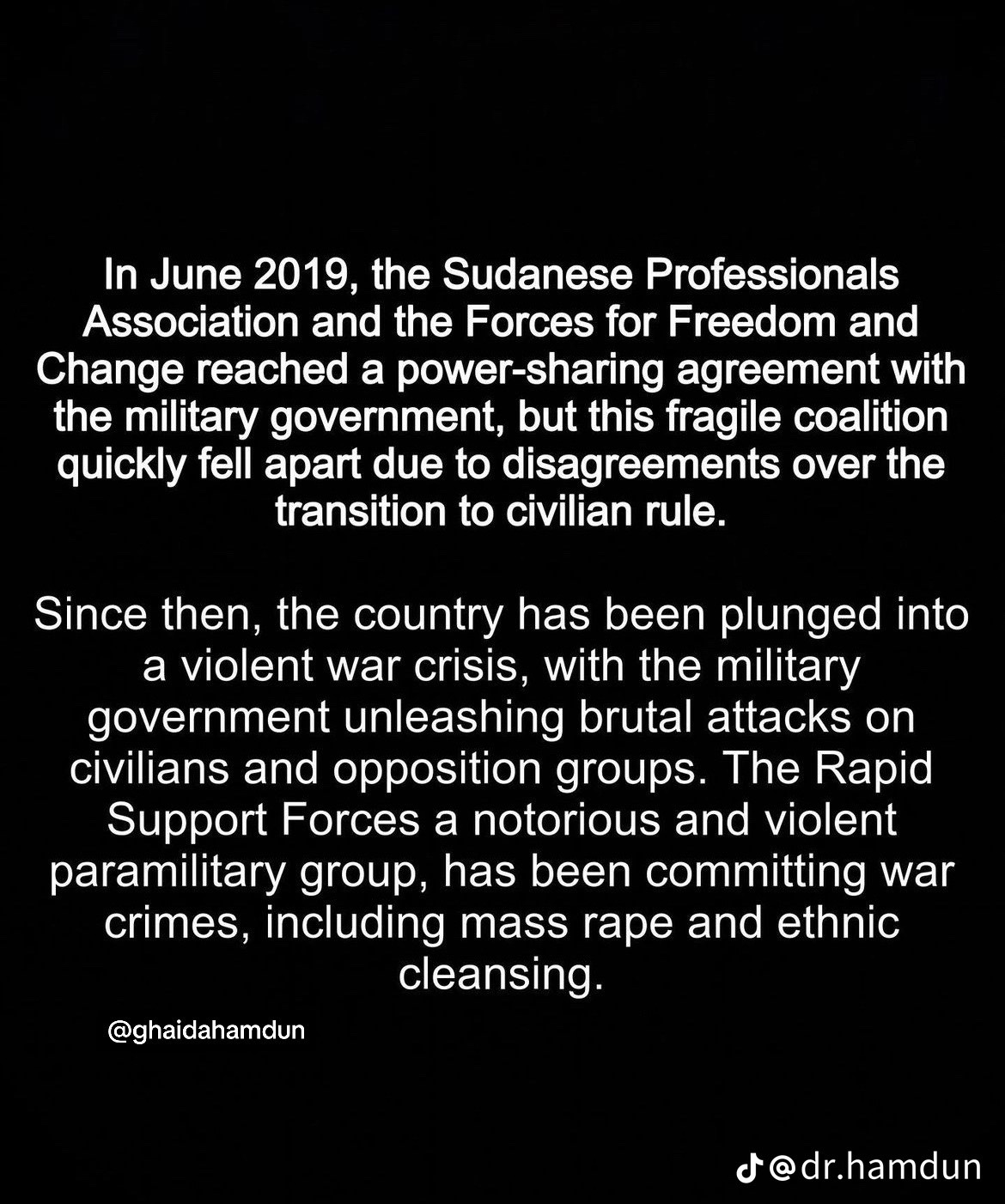
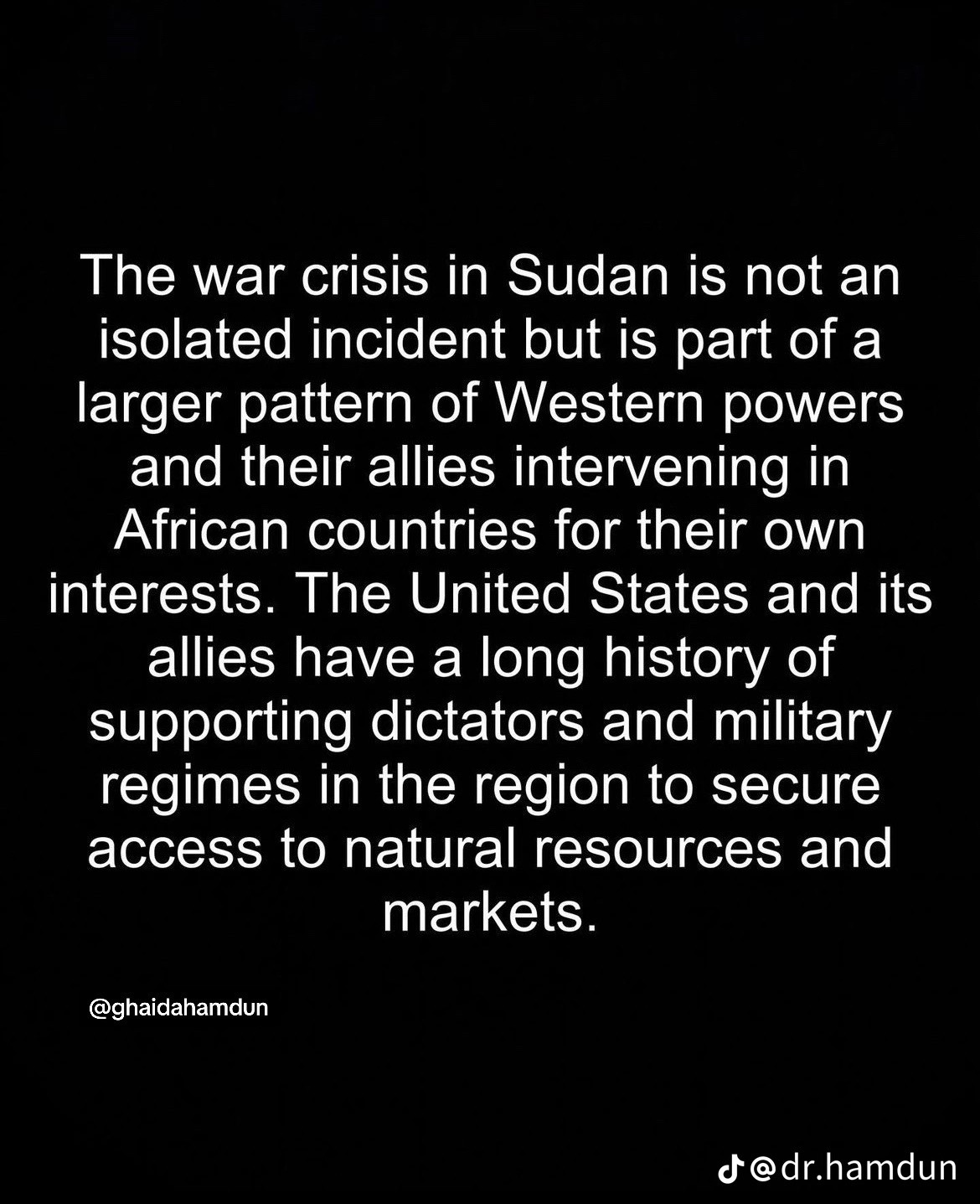
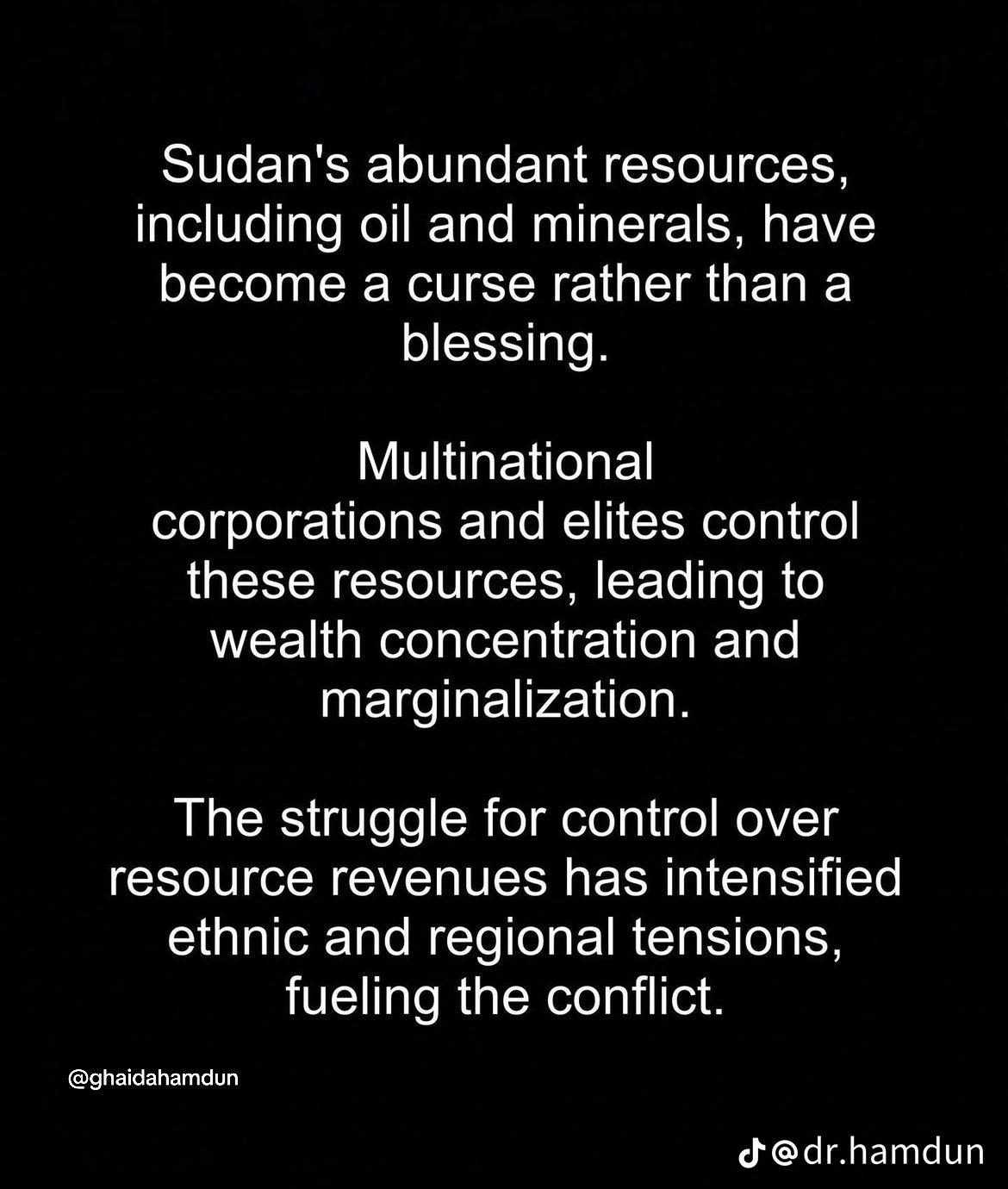
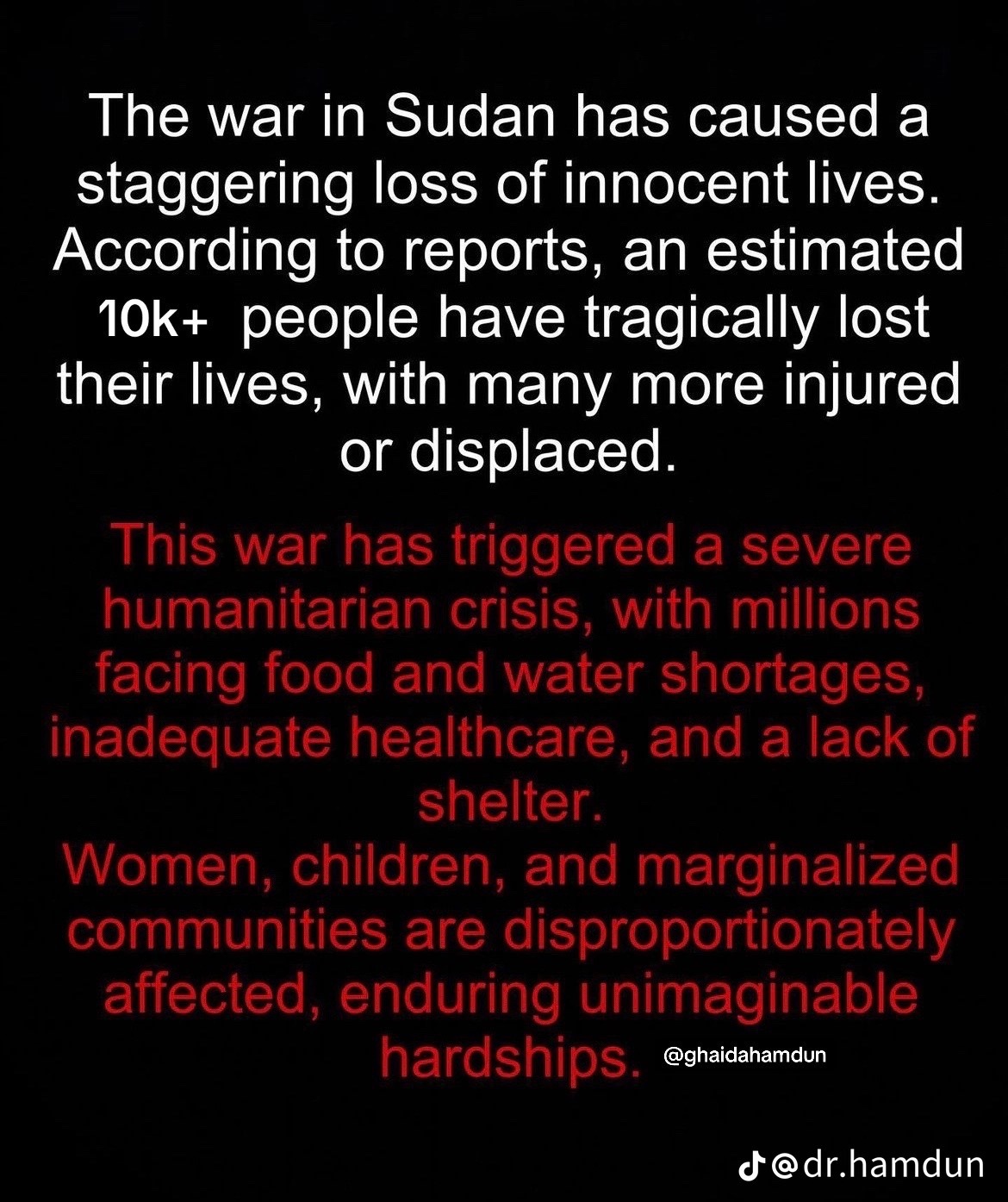
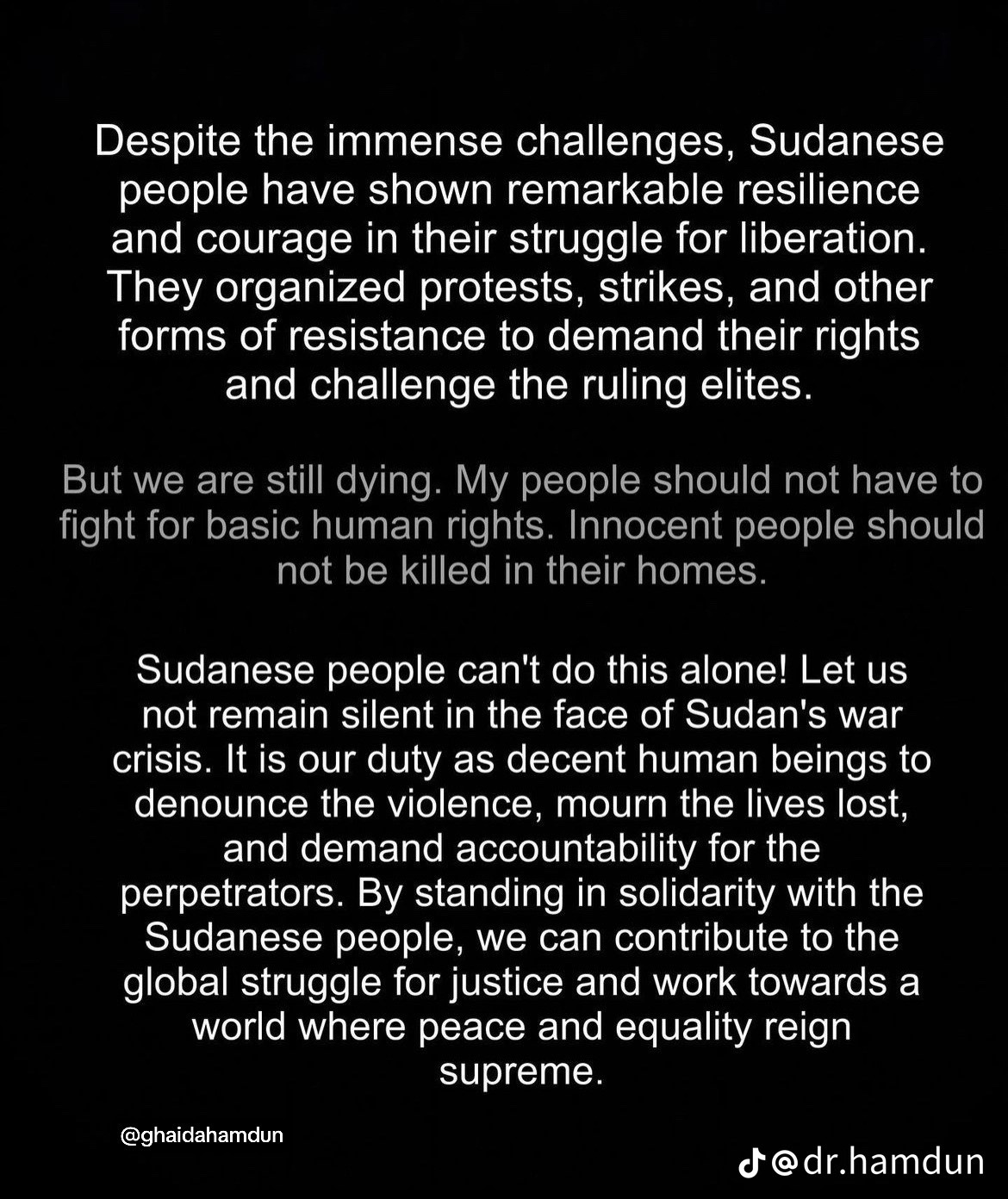
Text version:
What is Happening in Sudan?
A crash course
Because ignorance may be bliss, but ignorance is killing my people
LONG STORY SHORT... Sudan is currently facing a severe crisis marked by an ongoing war that has resulted in widespread violence, displacement, and humanitarian challenges. Why though?
Sudan has a long history of political and ethnic tensions, dating back to the colonial period and worsened by post-independence power struggles. The current conflict is rooted in the divide between the Arab-dominated government in Khartoum and the non-Arab ethnic groups in the country's periphery.
Colonial Legacy: Sudan's colonial history under British rule sowed the seeds of division, leaving behind a legacy of social, economic, and political inequalities that persist to this day.
Authoritarian Rule: Decades of dictatorial regimes, including Omar al-Bashir's 30-year rule, marginalized and oppressed various ethnic and religious groups, and increased tensions within Sudanese society.
The crisis began in December 2018 when Sudanese citizens took to the streets to protest against the government's austerity measures and the rising cost of living. The protests quickly turned into a larger movement demanding and end to President Omar al-Bashir's 30-year rule. After months of protest, al-Bashir was finally overthrown in April 2019 in a military coup led by General Abdel Fattah al-Burhan. However, the military establishment that replaced al-Bashir's government failed to address the root causes of the crisis and continued to repress dissent and oppress Sudanese people.
In June 2019, the Sudanese Professionals Association and the Forces for Freedom and Change reached a power-sharing agreement with the military government, but this fragile coalition quickly fell apart due to disagreements about the transition to civilian rule. Since then, the country has been plunged into a violent war crisis, with the military government unleashing brutal attacks on civilians and opposition groups. The Rapid Support Forces a notorious and violent paramilitary group, has been committing war crimes, including mass rape and ethnic cleansing.
The war crisis in Sudan is not an isolated incident but is part of a larger pattern of Western powers and their allies intervening in African countries for their own interests. The United States and its allies have a long history of supporting dictators and military regimes in the region to secure access to natural resources and markets.
Sudan's abundant resources, including oil and minerals, have become a curse rather than a blessing. Multinational corporations and elites control these resources, leading to wealth concentration and marginalization. The struggle for control over resource revenues has intensified ethnic and regional tensions, fueling the conflict.
The war in Sudan has caused a staggering loss of innocent lives. According to reports, an estimated (now outdated) 10K+ people have tragically lost their lives, with many more injured or displaced. This war has triggered severe humanitarian crisis, with millions facing food and water shortages, inadequate healthcare, and a lack of shelter. Women, children, and marginalized communities are disproportionately affected, enduring unimaginable hardships.
Despite the immense challenges, Sudanese people have shown remarkable resilience and courage in their struggle for liberation. They organized protests, strikes, and other forms of resistance to demand their rights and challenge the ruling elites.
But we are still dying. My people should not have to fight for basic human rights. Innocent people should not be killed in their homes.
Sudanese people can't do this alone! Let us not remain silent in the face of Sudan's war crisis. It is our duty as decent human beings to denounce the violence, mourn the lives lost, and demand accountability for the perpetrators. By standing in solidarity with the Sudanese people, we can contribute to the global struggle for justice and work towards a world where peace and equality reign supreme.